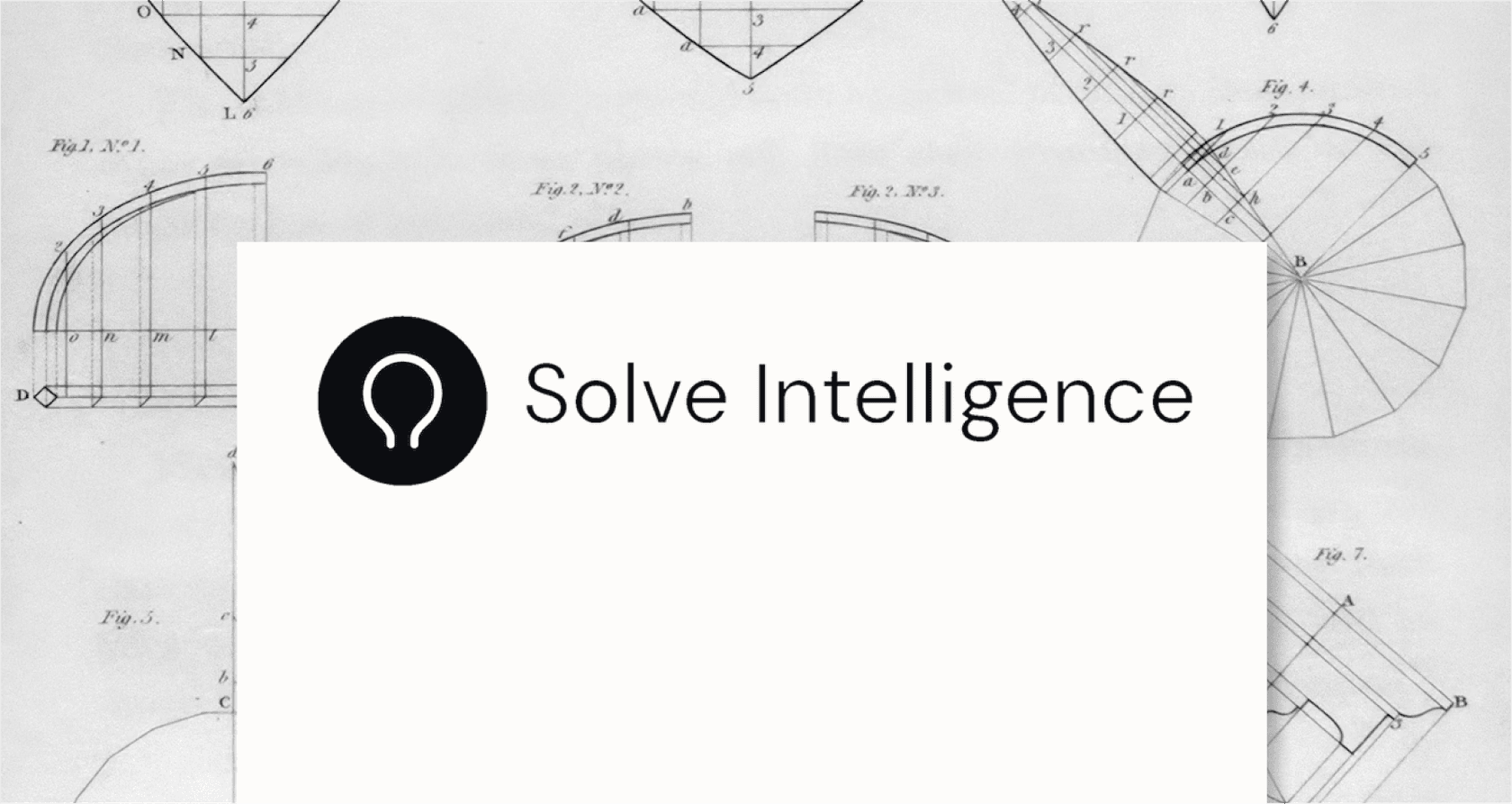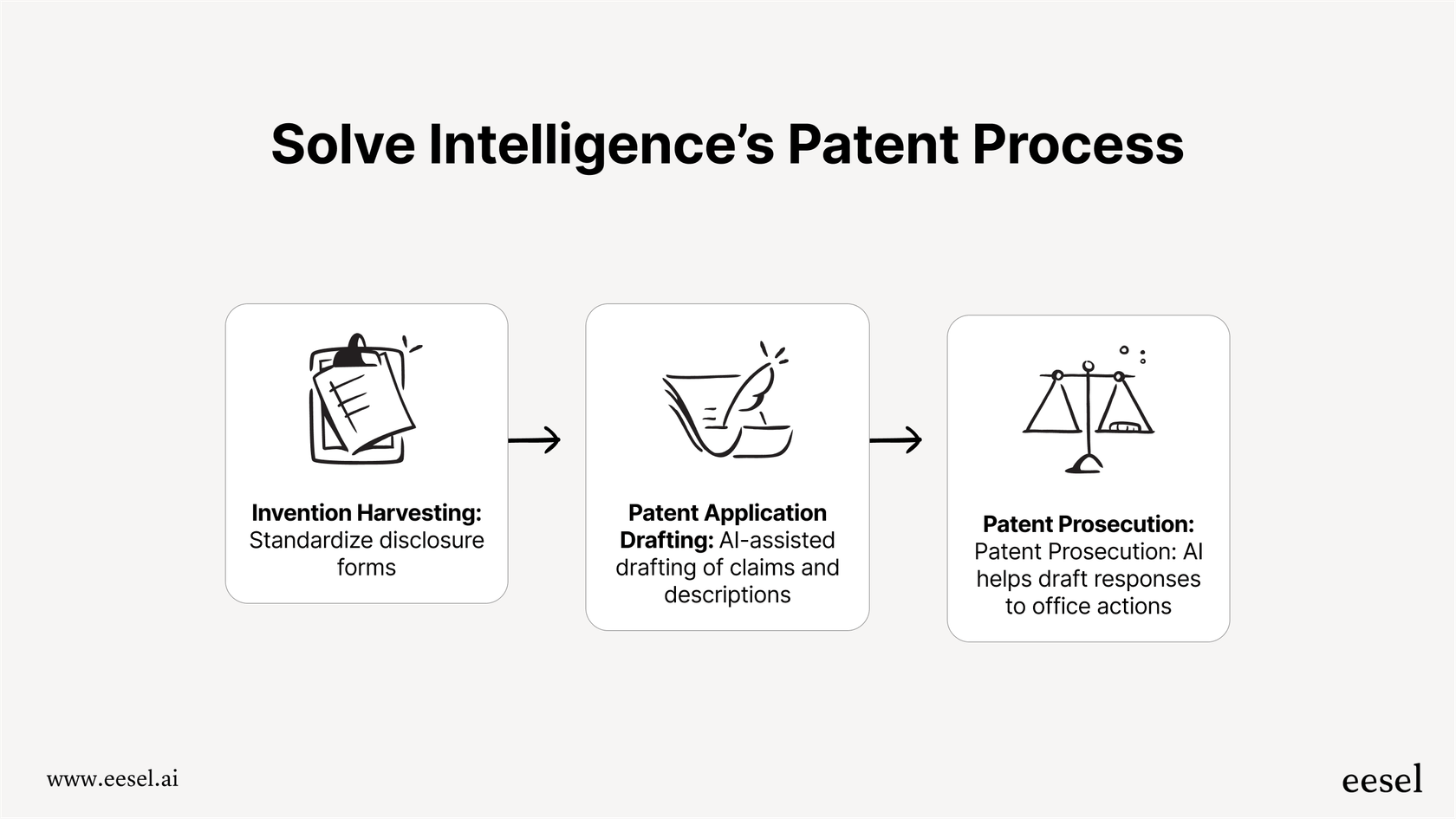
So, you're looking into AI tools for patent law and you've stumbled upon Solve Intelligence. It’s definitely making waves as a tool designed to cut down the heavy lifting in patent drafting and prosecution. But if you’re trying to figure out a budget, you’ve probably hit the same wall everyone else does: finding any concrete information on Solve Intelligence pricing is a real head-scratcher.
Don't worry, you’re not missing some secret page. This guide is here to pull back the curtain on what Solve Intelligence offers and what its pricing structure is all about. We'll walk through what the platform actually does, why its pricing is kept under wraps, what features they use to justify the enterprise model, and the limitations of a system that won’t just show you the price tag.
What is Solve Intelligence?
At its core, Solve Intelligence is an AI sidekick for patent professionals. Think of a document editor that feels a lot like Google Docs, but with a powerful AI engine working right alongside you. This makes the interface feel comfortable while delivering some serious automation for the most tedious parts of intellectual property law.
It’s got some serious backing from investors like Microsoft's M12 fund and is a graduate of the well-known Y Combinator S23 batch, which tells you it’s aimed squarely at the high-stakes, high-value legal market.
Who is it for?
Solve Intelligence wasn't built for everyone. It’s designed for a very specific group: patent attorneys, specialized IP law firms, and the in-house IP teams at tech companies.
It’s trying to fix a problem that’s as old as the industry itself: the patenting process is painfully slow, ridiculously complex, and incredibly expensive. One report estimates that a worldwide patent can run you about $60,000 on average and take years to get approved. The whole point of Solve Intelligence is to slash that time and cost, letting legal experts focus on high-level strategy instead of drowning in paperwork.
Core product offerings
The platform breaks down the patent process into three key stages:
-
Invention Harvesting: This feature helps create standardized invention disclosure forms. It makes it much easier to collect and organize new ideas from inventors and R&D teams without the usual back-and-forth.
-
Patent Application Drafting: This is the main event. Here, attorneys can draft entire patent applications with the AI's help, from generating claims to writing out the detailed descriptions. It’s designed to handle a wide range of inventions, from simple gadgets to complex chemical compounds.
-
Patent Prosecution: When the patent office comes back with objections (called "office actions"), the tool helps attorneys write solid, legally sound responses, complete with relevant arguments and citations.

An honest look at Solve Intelligence pricing
Alright, let's get right to it. You won't find a price list for Solve Intelligence. If you've tried to find their official pricing page, you were probably met with a "Page Not Found" error. Third-party sites like AIToolGuru also confirm the model is "Contact for Pricing." This isn't a mistake; it's by design.
Why can't you find a Solve Intelligence pricing list?
This "contact us for a quote" approach is pretty standard for high-end B2B software, and it usually comes down to a few things:
-
Enterprise Focus: The tool is built for big organizations with complicated needs. A single price doesn't work when you're selling to a massive global law firm one day and a lean in-house team the next.
-
Value-Based Pricing: The price is often tied to the value a customer gets. This could depend on how many attorneys use the platform, the number of patents they file, or the specific features they need access to. The idea is to make sure the price makes sense for the customer's return on investment.
-
Sales-Led Motion: This model means you have to talk to a salesperson. It lets the company screen potential customers, learn about their specific problems, and give a tailored demo before talking numbers. It’s a way to ensure they’re investing time in serious buyers who are a good match for the product.
What to expect from enterprise AI pricing models
For a tool like Solve Intelligence, pricing is almost always a custom package. It's likely based on per-user licenses for each attorney, usage limits (like a certain number of patent applications or office action responses a month), and potentially extra fees for setup or training.
Let's be honest, this can be frustrating if you just want to know what you're getting into. It's a big departure from the open, self-serve models many of us are used to now. For instance, platforms like eesel AI put their pricing out in the open for everyone to see. You can see exactly what you'll pay and get started yourself in a few minutes, no sales call required.
This philosophical difference really changes how you bring new tools into your workflow.
| Feature | Enterprise Model (e.g., Solve Intelligence) | Transparent Model (e.g., eesel AI) |
|---|---|---|
| Pricing | Hidden, "Contact Us" | Publicly listed tiers |
| Onboarding | Requires sales calls and demos | Self-serve, get started in minutes |
| Budgeting | Hard to plan for | Predictable and easy to scale |
| Flexibility | Usually requires annual contracts | Monthly options are available |
Key features that justify the price
So, what are you getting for that custom, enterprise-level price tag? Solve Intelligence packs some serious features built specifically for the complexities of patent law.
AI-powered patent drafting and prosecution
The heart of the platform is its AI copilot, which lives inside the document editor. It's much more than a glorified autocomplete; it’s a generative AI that actually understands the language and structure of patents. Users have said it can turn a rough transcript from a client meeting into well-written claims and descriptions. According to testimonials on their site, some firms have cut down their drafting time by 60-80%.
The AI is also trained to work with technical inputs like diagrams, chemical structures, and biological sequences, so it's useful across various industries. It can even generate full responses to office actions by referencing relevant case law and other documents to build its arguments.

Security and confidentiality
In the legal world, security is everything. Handling sensitive, proprietary information is part of the daily grind, and Solve Intelligence has made this a central pillar of its platform.
They’re very clear that no customer data is ever used to train their AI models, which is a huge deal for law firms worried about their clients' trade secrets ending up in a public model. They also prominently display their security credentials:
-
SOC 2 Compliance
-
GDPR & CCPA Ready
-
ISO 42001 Certification
This focus on confidentiality is a major selling point for their target market and a big reason they can stick to an enterprise sales model.
The challenges of a specialized tool
Look, Solve Intelligence is obviously a heavy-hitter for patent work. But its laser focus and "call us" sales model can cause some real headaches, especially if your team needs to move fast and stay flexible.
The challenge of opaque pricing and lengthy sales cycles
The first problem is a practical one. You can't budget properly if you can't see the price. Having to schedule demos, go through negotiations, and then wait for a custom quote can push back implementation by weeks, if not months. For teams that like to try before they buy, this friction can be a non-starter. It effectively blocks smaller firms or teams who don't have the bandwidth for a long sales dance just to see if a tool is a good fit.
The need for broader knowledge integrations
Patent work doesn't exist in a bubble. A law firm or a corporate legal department relies on all sorts of information stored in dozens of different places. While Solve Intelligence knows patents inside and out, it can't help with the thousands of other questions your team has every day.
What about an internal Q&A bot to help new paralegals find their footing? How do you automate answers for your internal IT helpdesk? Or what if you're a legal tech company that needs to provide customer support for your own product? A niche tool is great at its one thing, but it can't solve these problems because its knowledge is trapped in one domain.
A transparent alternative: eesel AI
This is where the frustration with hidden pricing and siloed tools opens the door for a different approach. A platform like eesel AI is built from the ground up to be the opposite: transparent, quick, and connected.
- First off, transparency. eesel AI puts its pricing right on its website. You can check out the different tiers, see what's included, and pick a monthly plan you can cancel whenever. No hidden costs or long-term contracts to get in the door.

-
Second, speed. The whole platform is self-serve. You can sign up, connect your knowledge sources, and have a functional AI agent ready to go in minutes, not months. No mandatory sales demos blocking your path.
-
And finally, flexibility. eesel AI isn't locked into one subject. It connects all your scattered information, no matter where it is. You can train it on your internal wikis in Confluence, pull information from documents in Google Docs, or learn from past customer issues in Slack. This lets you build AI for a huge range of tasks, from answering internal HR questions to providing 24/7 customer support.

Evaluating Solve Intelligence pricing and choosing a transparent AI platform
At the end of the day, there's no question Solve Intelligence is a powerhouse for patent law. Its features and security are tailored for big IP firms and corporate legal departments. But the hidden price tag and long sales process are real hurdles that can slow down budgeting and getting started.
For teams that need a faster, more open, and more versatile solution, a different kind of AI platform just makes more sense. A tool like eesel AI puts you in complete control, connects to all the knowledge you already have, and offers a clear, predictable way to automate your internal and external support.
Ready for an AI platform that plays by your rules? Sign up and build your first AI agent with eesel AI in minutes.
Frequently asked questions
Solve Intelligence targets large enterprises with complex needs, so a single price wouldn't fit all. Their "contact us" model allows for value-based pricing, tailoring costs to the specific value a customer receives based on usage and features.
Pricing is usually custom and may depend on the number of users or attorneys accessing the platform, specific usage limits (e.g., patent applications per month), and potentially additional fees for setup or specialized training.
An enterprise focus means the pricing is designed for large organizations with unique, complicated requirements, moving away from a one-size-fits-all approach. This allows for customized packages that reflect the scale and specific needs of the client, requiring a direct sales engagement.
Unfortunately, no. The "contact us for a quote" model means you'll typically need to go through a formal sales process, including demos and negotiations, which can be time-consuming for smaller firms. This approach is designed to screen serious buyers.
The enterprise pricing provides access to an AI copilot for patent drafting and prosecution, capable of generating claims and responses to office actions. It also includes robust security and confidentiality features like SOC 2 compliance, crucial for handling sensitive legal data.
The lack of transparent pricing can make budgeting difficult and delay implementation, as firms must navigate a lengthy sales cycle for quotes. This friction can deter teams that prefer a "try before you buy" approach or need to integrate tools quickly.
Share this post

Article by
Stevia Putri
Stevia Putri is a marketing generalist at eesel AI, where she helps turn powerful AI tools into stories that resonate. She’s driven by curiosity, clarity, and the human side of technology.







